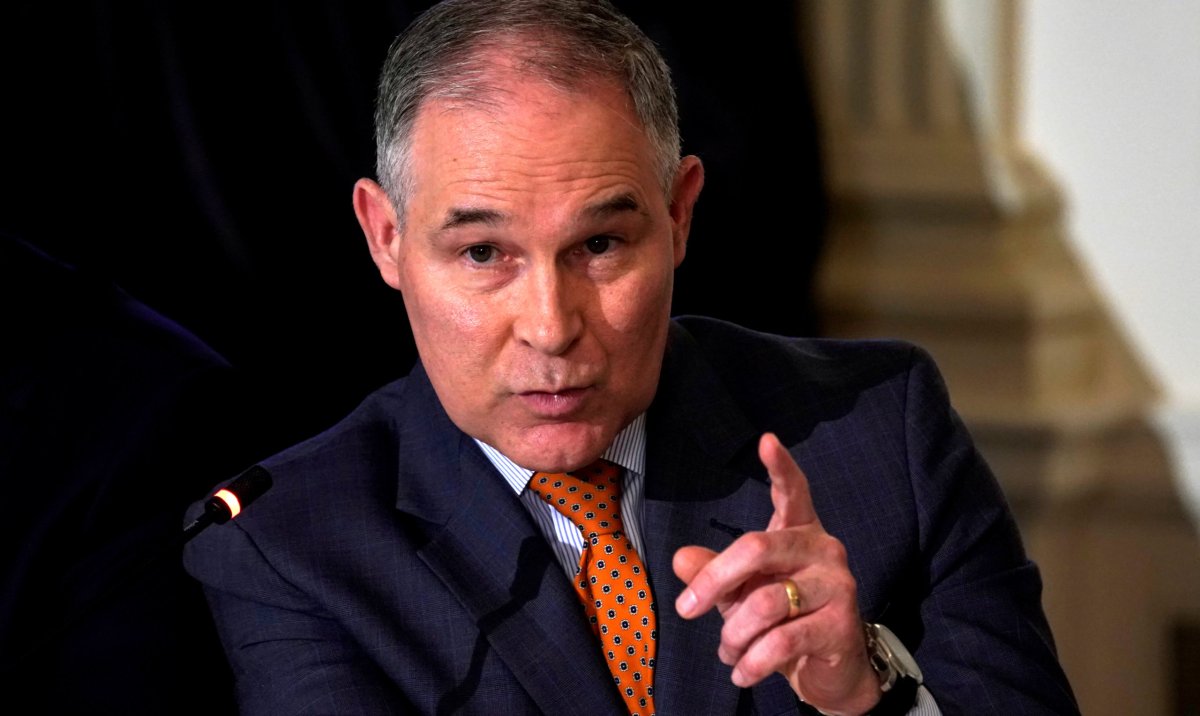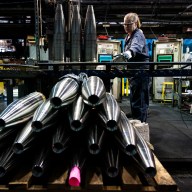By Timothy Gardner
WASHINGTON (Reuters) – The Trump administration on Monday rejected an Obama-era plan to make automobiles more fuel efficient, opening up a long process to weaken current standards and putting California and the federal government on a collision course over vehicle emissions.
Scott Pruitt, administrator of the Environmental Protection Agency, said in a statement that the standards on model year 2022 to 2025 vehicles were not appropriate and should be revised.
The Obama administration set the average fleet-wide fuel efficiency standards “too high” and “made assumptions about the standards that didn’t comport with reality,” Pruitt said. He did not offer specifics on revising them.
The standards called for roughly doubling by 2025 the average fuel efficiency of new vehicles sold in the United States to about 50 miles (80 km) per gallon. Proponents said they could help spur innovation in clean technologies.
California has long been allowed by an EPA waiver to impose stricter standards than Washington does on vehicle emissions of some pollutants. And 12 other states, including New York, Pennsylvania and Massachusetts, follow California’s lead on cleaner cars.
That has set up a battle on vehicle efficiency between California, the most populous U.S. state and a massive car market, and the administration of President Donald Trump.
Pruitt is a big proponent of states’ rights to regulate themselves, but opposes California’s push for greener cars. California’s waiver to impose its own efficiency standards is being re-examined, the EPA said.
It is in “America’s best interest to have a national standard,” Pruitt said in the release.
California Governor Jerry Brown blasted the EPA’s action. “This cynical and meretricious abuse of power will poison our air and jeopardize the health of all Americans,” Brown said.
Mary Nichols, the head of the California Air Resources Board, said her state “will vigorously defend the existing clean vehicle standards.”
PATCHWORK OF RULES
Auto industry executives have not publicly sought specific reductions in the requirements negotiated with the Obama administration in 2011 as part of a bailout deal. But they have urged Pruitt and Trump to revise the Obama standards so it becomes easier and less costly to meet complex targets, which vary depending on the size of vehicles and whether they are classified as cars or trucks.
Automakers also want to avoid a patchwork of rules that would add costs to engine manufacturing.
“The best way to achieve our collective goals is under a single national program that provides an aggressive but achievable pathway, a variety of compliance tools, and factors in the role of customers,” said John Bozzella, president and chief executive officer of the Association of Global Automakers.
Gloria Bergquist, a spokeswoman for the Alliance of Automobile Manufacturers, said Pruitt made the right decision and that the administration was working on a way to both increase fuel economy and “keep new vehicles affordable to more Americans.”
Changes to the standards could affect car manufacturers, including Ford Motor Co, General Motors Co and Tesla Inc
Auto suppliers were cautiously optimistic about the creation of a national fuel efficiency plan. Steve Handschuh, head of the Motor and Equipment Manufacturers Association, said while his group supports adjustments and flexibilities “we do not support significant changes to the standards.”
Environmentalists decried Pruitt’s decision, saying stricter standards would slash emissions of the greenhouse gas carbon dioxide. Proponents of the corporate average fuel economy standards, or CAFE, say they have led to big gains in auto technology and that relaxing them could eventually hurt sales of U.S. cars in European and Asian countries that are moving toward mandates for electric cars.
It would “take America backward by jeopardizing successful safeguards that are working to clean our air, save drivers money at the pump, and drive technological innovation that creates jobs,” said Luke Tonachel, a clean vehicles advocate at the Natural Resources Defense Council.
(Reporting by Timothy Gardner; Additional reporting by David Shepardson; Editing by Leslie Adler, David Gregorio and Lisa Shumaker)



















